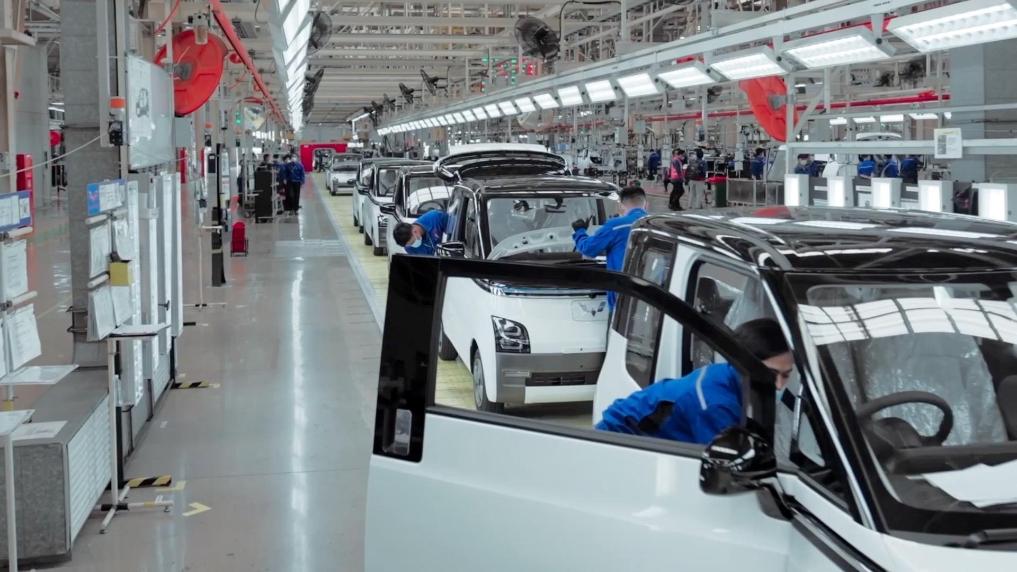Opinion: America's tax cuts, tariffs channel wealth to elites
Source: Xinhua
Editor: huaxia
2025-07-03 17:21:15

The U.S. Senate narrowly passed President Donald Trump's "One Big Beautiful Bill Act" Wednesday in a 51-50 vote.
BEIJING, July 3 (Xinhua) -- The U.S. Senate narrowly passed President Donald Trump's "One Big Beautiful Bill Act" Wednesday in a 51-50 vote. Though touted as delivering broad prosperity, the sweeping tax and spending package disproportionately benefits the wealthiest Americans.
At the heart of the bill is an unprecedented series of tax cuts, but the distribution of its benefits is deeply skewed. Senator Bernie Sanders labeled the legislation as a "gift to the billionaire class," citing data that the richest 1 percent of Americans will receive 975 billion U.S. dollars in tax relief and the top 0.2 percent will benefit from 211 billion dollars in estate tax exemptions.
The massive revenue shortfall caused by the bill is partly offset by cuts to social welfare programs, a cost that ultimately falls on ordinary citizens.
One of the deepest cuts targets the Affordable Care Act and Medicaid, which, according to Sanders, is expected to leave more than 16 million Americans without health insurance. A joint study by Yale University and the University of Pennsylvania warns that these cuts could result in over 50,000 preventable deaths each year.
Notably, ordinary Americans are already shouldering the burden of the Trump administration's "reciprocal tariffs," a policy rolled out at the beginning of Trump's second term under the slogans of "fair trade" and "protecting American workers," but which has actually led to rising import prices.
A study by The Budget Lab at Yale found that in the short term, tariffs raised consumer prices by 2.3 percent, effectively reducing each household's purchasing power by about 3,800 dollars a year.
Meanwhile, tariffs have shown more than three times the real impact on low-income households compared to high-income groups, according to an analysis by the U.S. think tank Institute on Taxation and Economic Policy.
When examined together, the tax cuts and tariffs expose a clear pattern of wealth transfer: the U.S. government channels public resources to the wealthy and corporate shareholders through tax breaks, then attempts to cover the resulting deficit with tariffs. The costs are ultimately passed on to domestic consumers, especially low- and middle-income households, through higher prices.
Critics widely worry that by cutting taxes for the wealthy and slashing welfare programs that support low-income groups, the "big and beautiful" bill may worsen income inequality in the United States and escalate social tensions.
U.S. billionaire Elon Musk, who used to be a close ally of Trump, has repeatedly slammed the bill, denouncing it as "a disgusting abomination" and warning that "Congress is making America bankrupt."
Beyond deepening inequality today, the bill also benefits the current elites while saddling younger Americans with long-term costs. The nonpartisan Congressional Budget Office estimates that the tax cuts could add 3.3 trillion dollars to the national deficit over the next decade. With public debt already exceeding 36 trillion, such increases shift the burden to future generations.
The combination of tax cuts and tariffs lays bare a chronic illness at the heart of America -- policymaking is heavily influenced by corporate interests and systematically serves them. The design of the bill prioritizes capital interests from the outset, while the tariff policy ends up forcing ordinary consumers to bear the cost.
In such a campaign finance system, billionaires use massive political donations to secure policies that benefit themselves. On a broader level, this logic of money-driven politics has shaped a political environment that is far more responsive to the needs of capital than to the demands of the public. ■













Comments